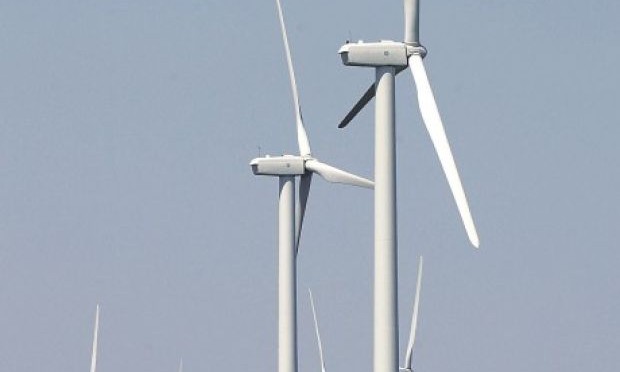The issue of energy may have been overshadowed by that of tax at yesterday’s EU summit of Heads of State in Brussels, but its growing importance and impact on Europe’s economy is one that cannot be ignored.
As the Financial Times reported on Tuesday, Europeans are paying a lot for their energy – prices are 37% higher than those in the US and 20% higher than those in Japan. Why? Largely because we import an incredibly high share of expensive fossil fuels.
What’s worse is that this dependence – and hence impact on prices – is growing. Herman van Rompuy, President of the European Council, has said that by 2035 over 80% of our energy will be imported, posing a threat to Europe’s competitiveness and endangering its economy.
Taking a look at the evolution of fossil fuel prices over the last three years shows how strong this threat is – the EU’s import bill has gone up by €200 billion due to increasing fuel prices during that time, and last year the EU paid €406 billion for oil and gas imports – 3.2% of its GDP or €1.1 billion a day.
But there is a way out. Europe is at the cutting edge of renewable energy technology and a world leader in wind energy. Wind energy is already meeting 7% of the EU’s electricity demand and its potential is enormous. The European Commission itself says that wind power could meet 32-49% of our electricity demand by 2050.
“Our continent is buffeted by a resource worth renewable gold – the wind, and is currently a world-leader in wind energy technology. We must transform our energy system and reduce our expensive and polluting energy dependence. Wind power is one of the best answers to this necessary transformation”, Thomas Becker, EWEA CEO, said reacting to the Summit conclusions.
It will take a push to get there: we need political motivation in the form of support for the industry and targets for growth, and we need a Europe-wide electricity market and infrastructure system to introduce competition, bring down prices and deliver renewable energy from where it is produced to where it is consumed.
Meanwhile research and development in wind power must be supported to bring down the costs of the technology offshore and constantly improve the long-established and already competitive with conventional fuels onshore technology.
EU leaders did agree that something needs to be done to combat rising energy prices. The issue of shale gas is on people’s minds, but as the Financial Times pointed out, extraction may be much more complicated in Europe than it has been in the US, and there are large question marks over the environmental damage fracking could cause.
As van Rompuy said, there is “huge potential [for renewable energy]…and we should take full advantage of it, especially now that these technologies are becoming more and more mature.”
MEPs back 2030 renewable energy target
As EU leaders fail to come up with concrete support for a healthy energy future in Europe, at least MEPs are supporting strong action. On Tuesday, the European Parliament renewed its commitment to wind power and other renewable energies by supporting a binding renewable energy target for 2030.
In the text adopted Tuesday, the Parliament said it agrees with the European Commission that renewable energy will help reduce Europe’s dependence on conventional energy.
“Targets and milestones should be set for the period to 2050 in order to ensure that RES have a credible future in the EU,” the text says, adding all scenarios presented by the Commission in its Energy Roadmap 2050 assume a share of at least 30% renewables in the EU’s energy mix in 2030.
The text also says that the EU should endeavour to achieve an even higher share, and calls on the Commission to propose a mandatory EU-wide renewable energy target for 2030. EurActiv says a Communication on 2030 targets is expected by the end of the year.
Meanwhile, an EWEA blog posting last week noted that French and German ministers have called for 2030 renewable energy targets, highlighting the importance of renewables in transforming the European economy, improving energy security and reducing greenhouse gas emissions.
The Irish Ambassador to the European Union also said Ireland “would be very keen to have 2030 targets.”
Additional reporting by Chris Rose
By Zoë Casey, http://www.ewea.org/blog


